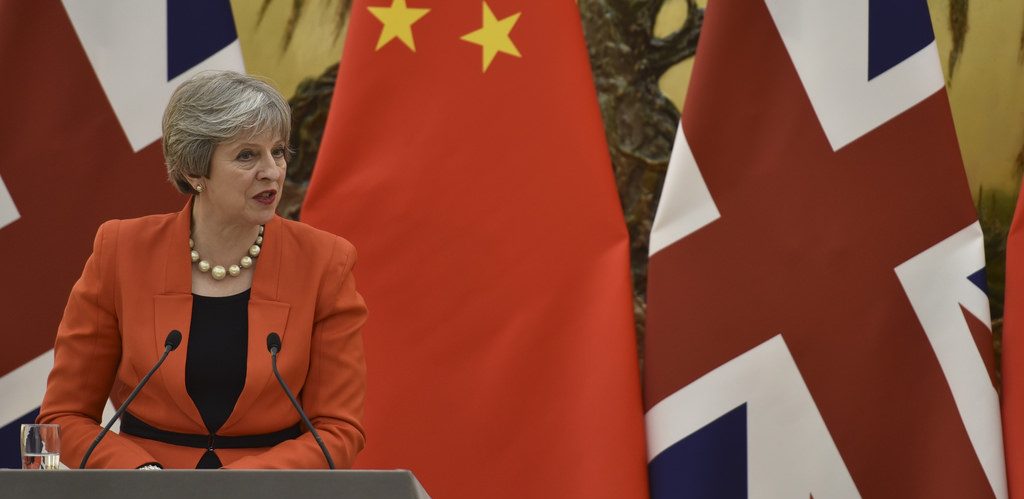
Theresa May hasn’t had much to smile about recently, but her recent trip to China will have left her beaming. Like the UK’s present relationship with the United States, it may be an awkward affair, and struck as much through convenience as genuine bonhomie. But the signs in the short term at least are promising, and point to a potentially lucrative post Brexit agreement on future trade.
The meeting with Chinese President Xi Jinping was May’s second trip to China since her appointment as Prime Minister, and one of a number of notable foreign visits. As well as this three-city tour of China, May has visited the United States, Turkey, Japan, Canada, Jordan, Saudi Arabia, India and Bahrain. Coupled with the many trade visits of Liam Fox, this is a positive sign of Britain’s continued strength as a trading partner and tactical ally after Brexit.
Perhaps more marked was the success of the other members of the delegation. British business interests were represented by firms including AstraZeneca, Jaguar Land Rover and BP, and £9bn of new trade deals were ultimately signed. Although the finer details have yet to be announced, the hope is that this will renew the ‘golden relationship’ with China touted by David Cameron, and will precipitate broader trade agreements.
The delegation also struck an agreement to begin a comprehensive joint trade and investment review, exploring the potential for a deeper alliance. Exports to China have already risen by 60% since 2010, yet the potential is significantly higher. The UK is particularly keen on entering sectors that are not currently greenlit for foreign investment, including pharmaceuticals, agriculture and meat products, many of which have been banned for import since the 1980s.
While this latest deal is modest in comparison with past agreements – £40bn in deals were signed when XI visited the UK in 2015 – it is significant in its timing. With Brexit talks resuming at a critical phase, and EU Brexit negotiator Michel Barnier arriving in London, the trip to China is a significant statement of intent. The trade and investment review also points to greater things. While Liam Fox conceded that a formal free trade agreement is some way off, this review is an avenue towards it.
A proper trade agreement with China, even with limits, could be worth many billions more. Premier Li Keqiang has already promised that restrictions on agricultural exports will be eased, and that British beef will be allowed back into the country. A raft of cultural deals were also struck, including TV distribution rights and an exchange of maths and language teachers.
Most crucially, all of this was achieved without signing onto China’s ‘Belt and Road’ initiative. The $900bn scheme aims to extend China’s soft power around the globe by investing heavily in the infrastructure of various countries. While this will have frustrated China, the UK is reflecting a wider European view of suspicion towards the scheme. The decision to turn down involvement while in China is a show of strength, as well as alliance with other European nations.
For all its opulence and potential importance, the China visit has been described as low key. This isn’t untrue, but neither should it be a cause for concern. Trips like these to China and the guarantees made with Japan may not be showy, but they represent small steps towards a more global, outward-looking Britain after Brexit.
We’ll endeavour to keep you up-to-date on all the latest news surrounding Brexit. For more information on starting a business in the UK or China, or business services anywhere else in the world, don’t hesitate to contact us.
